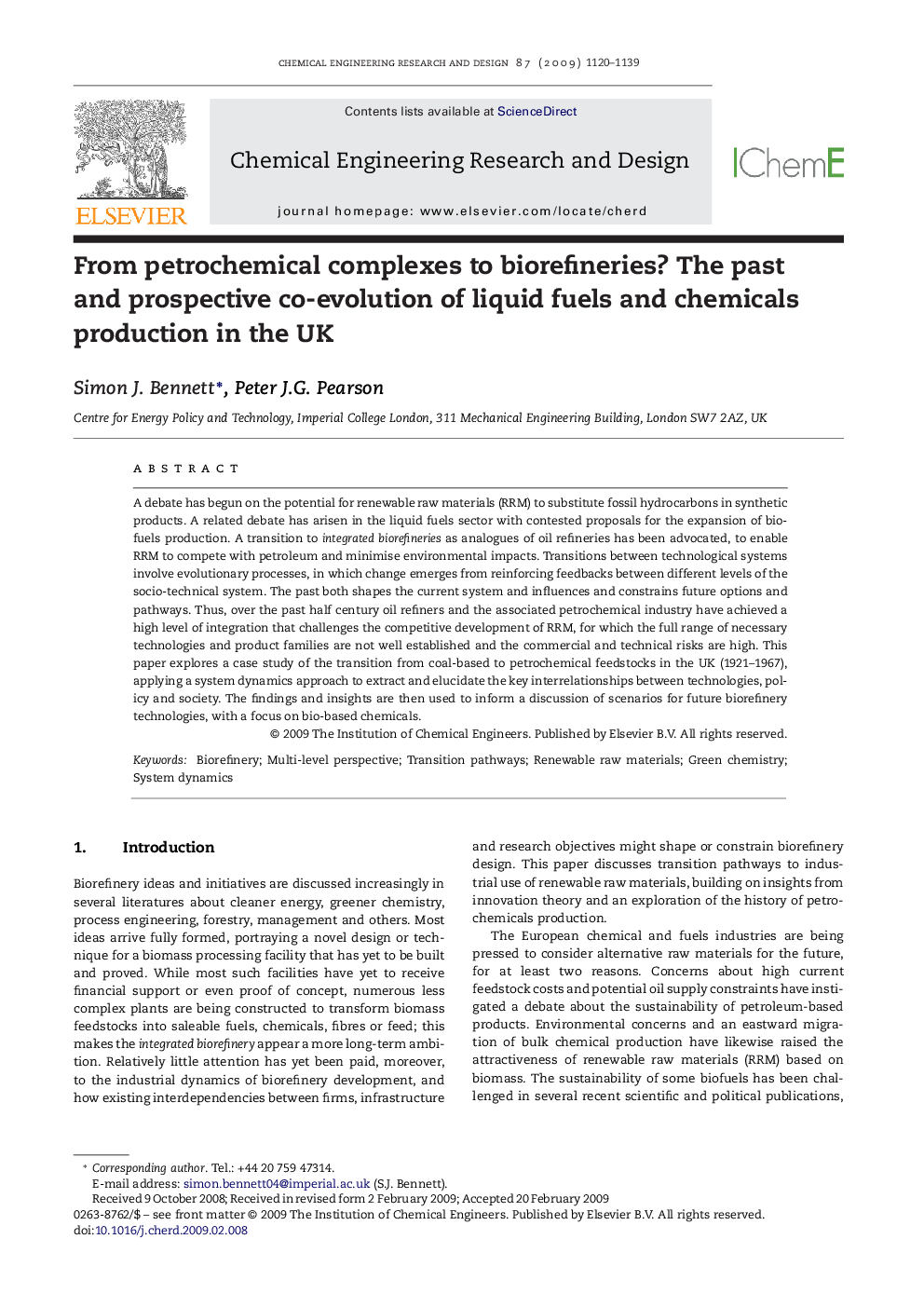| Article ID | Journal | Published Year | Pages | File Type |
|---|---|---|---|---|
| 621071 | Chemical Engineering Research and Design | 2009 | 20 Pages |
A debate has begun on the potential for renewable raw materials (RRM) to substitute fossil hydrocarbons in synthetic products. A related debate has arisen in the liquid fuels sector with contested proposals for the expansion of biofuels production. A transition to integrated biorefineries as analogues of oil refineries has been advocated, to enable RRM to compete with petroleum and minimise environmental impacts. Transitions between technological systems involve evolutionary processes, in which change emerges from reinforcing feedbacks between different levels of the socio-technical system. The past both shapes the current system and influences and constrains future options and pathways. Thus, over the past half century oil refiners and the associated petrochemical industry have achieved a high level of integration that challenges the competitive development of RRM, for which the full range of necessary technologies and product families are not well established and the commercial and technical risks are high. This paper explores a case study of the transition from coal-based to petrochemical feedstocks in the UK (1921–1967), applying a system dynamics approach to extract and elucidate the key interrelationships between technologies, policy and society. The findings and insights are then used to inform a discussion of scenarios for future biorefinery technologies, with a focus on bio-based chemicals.
